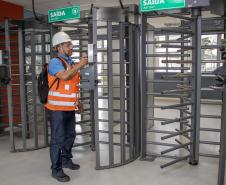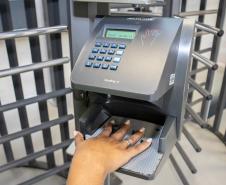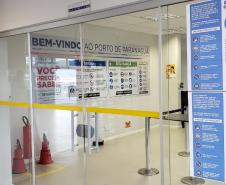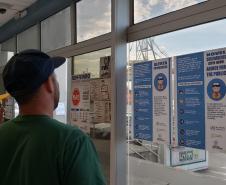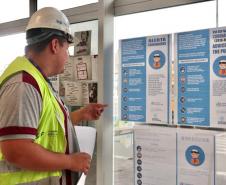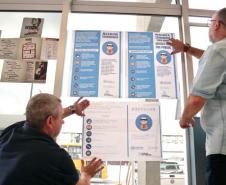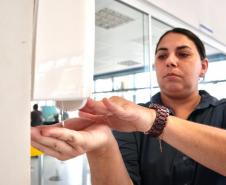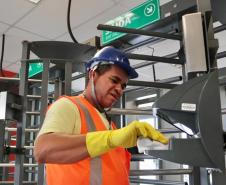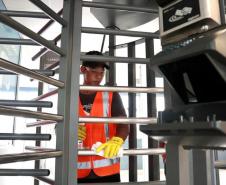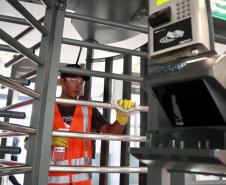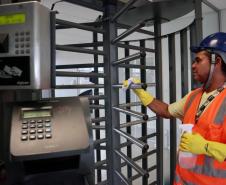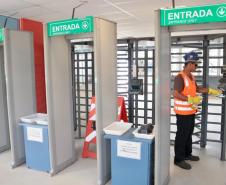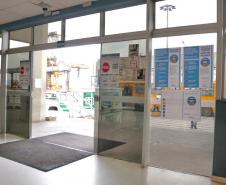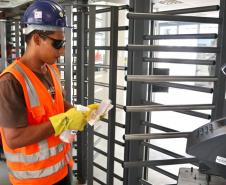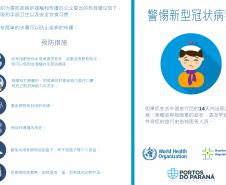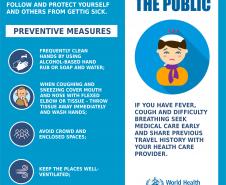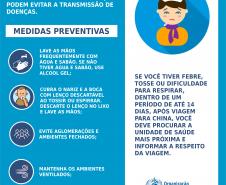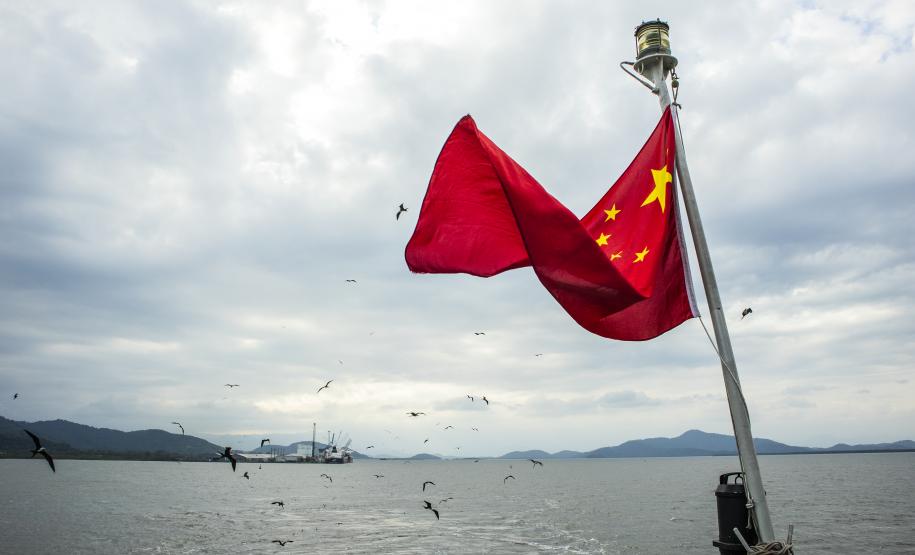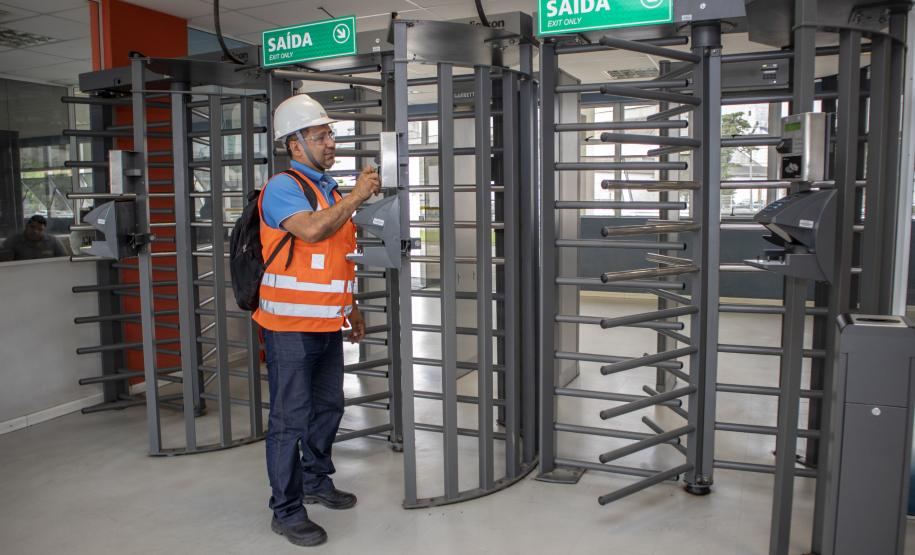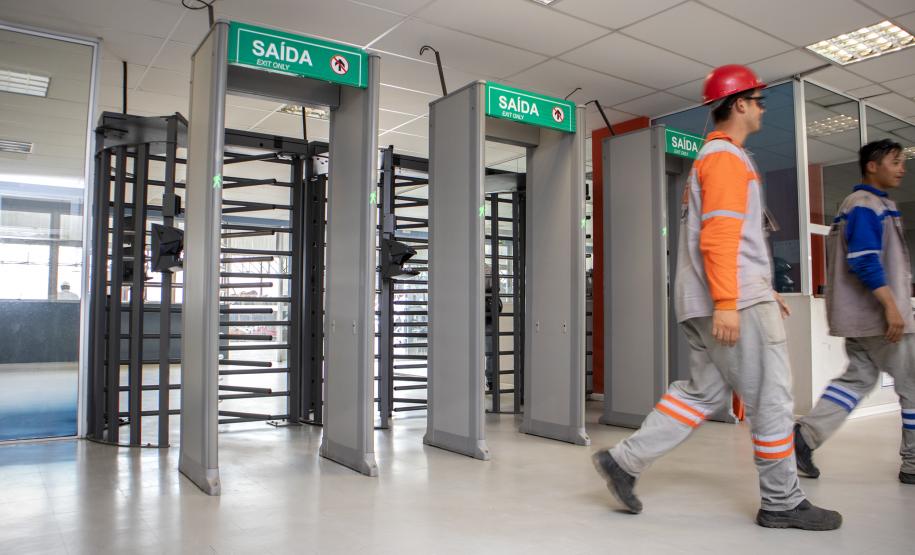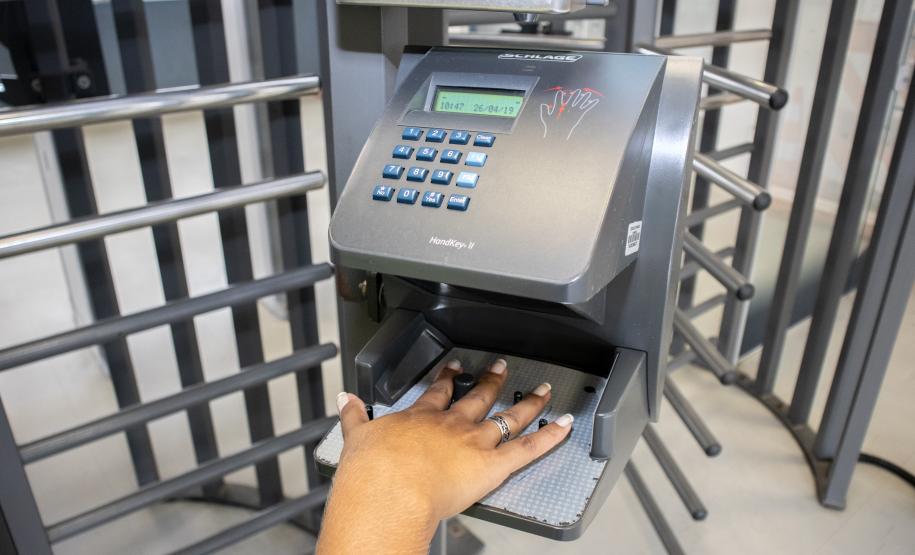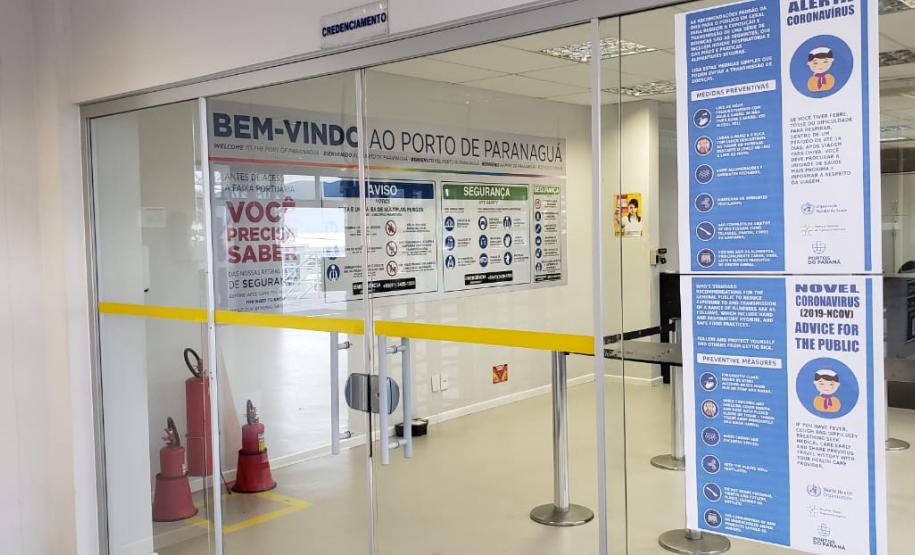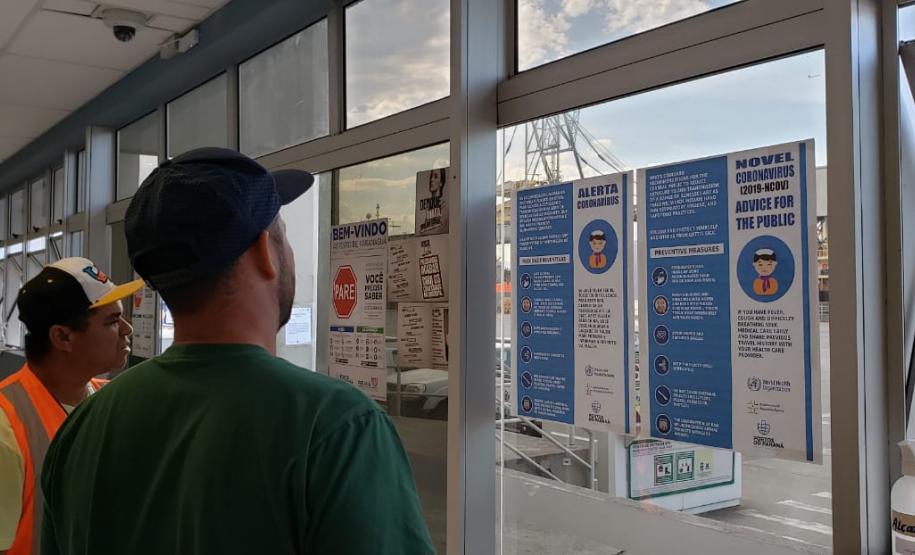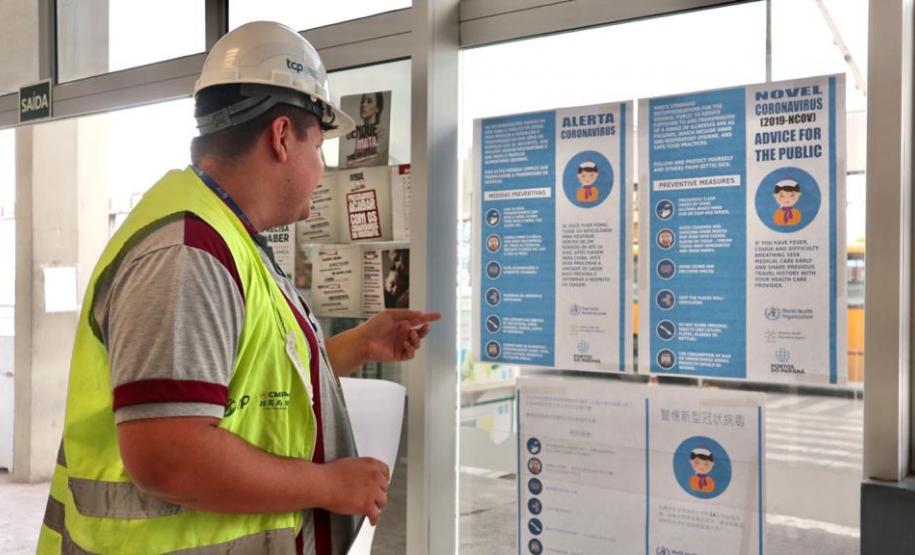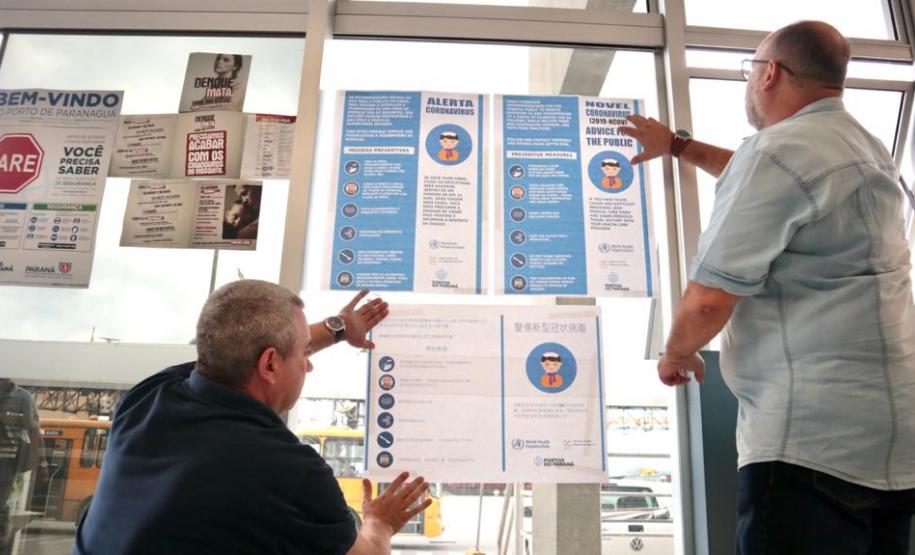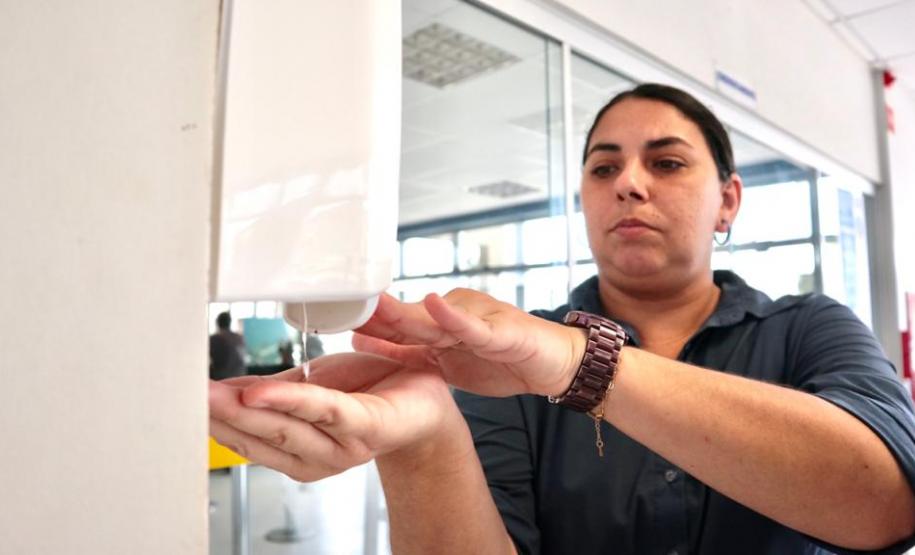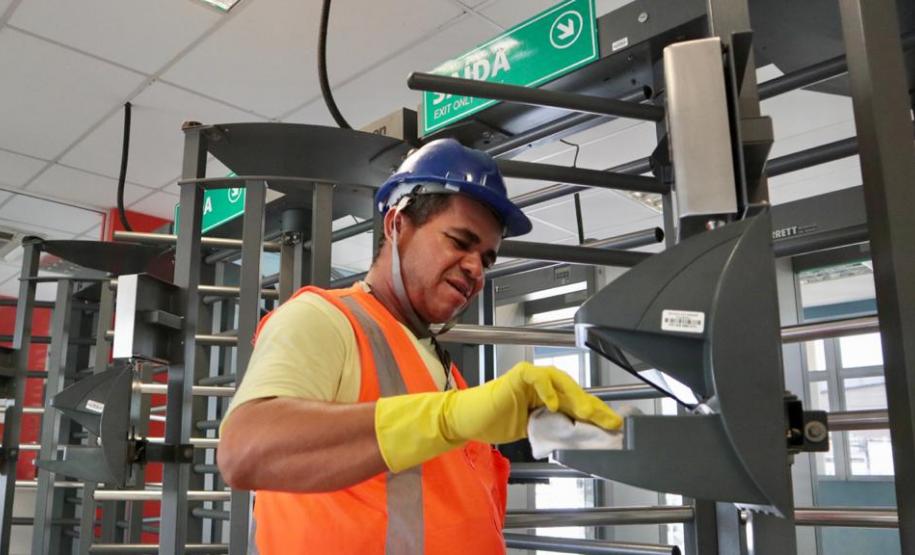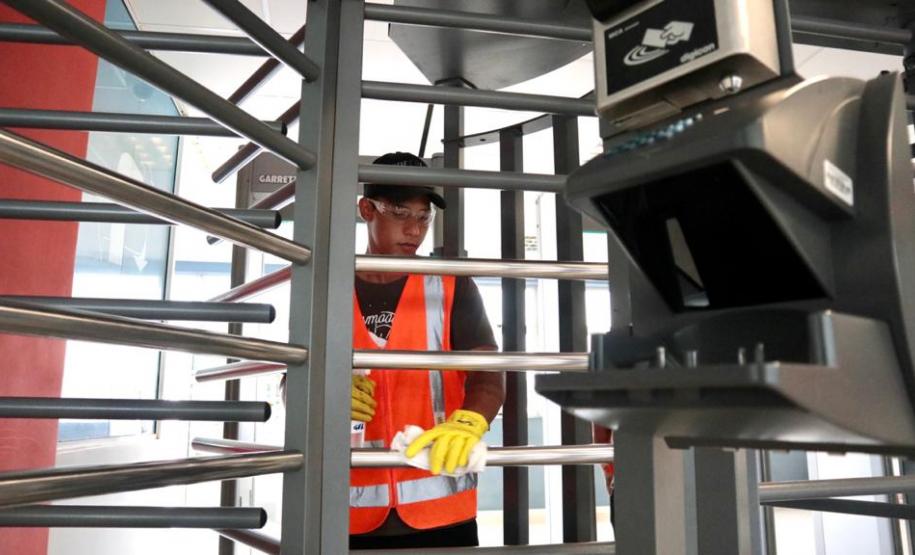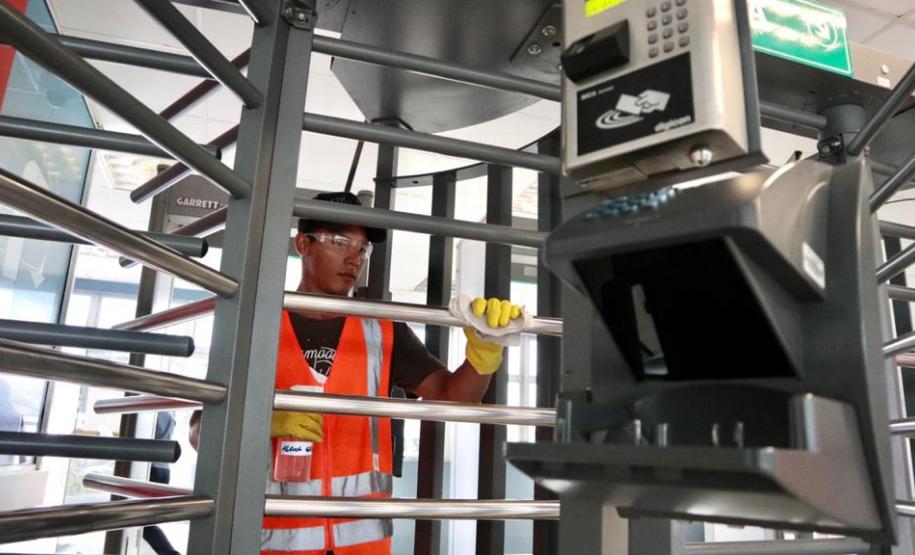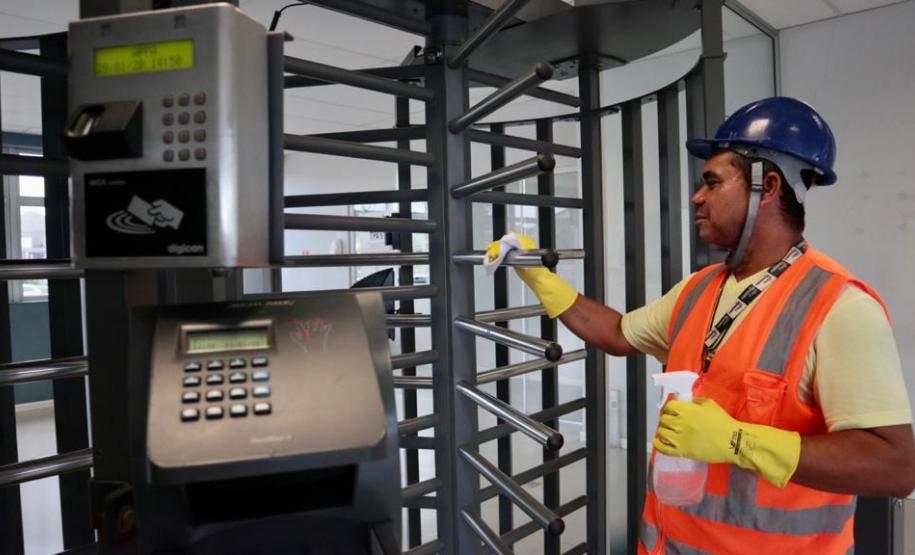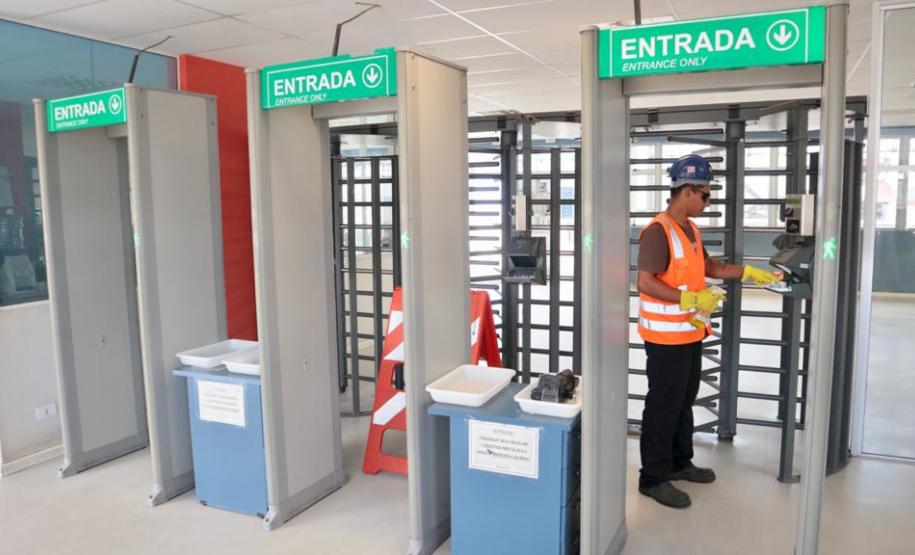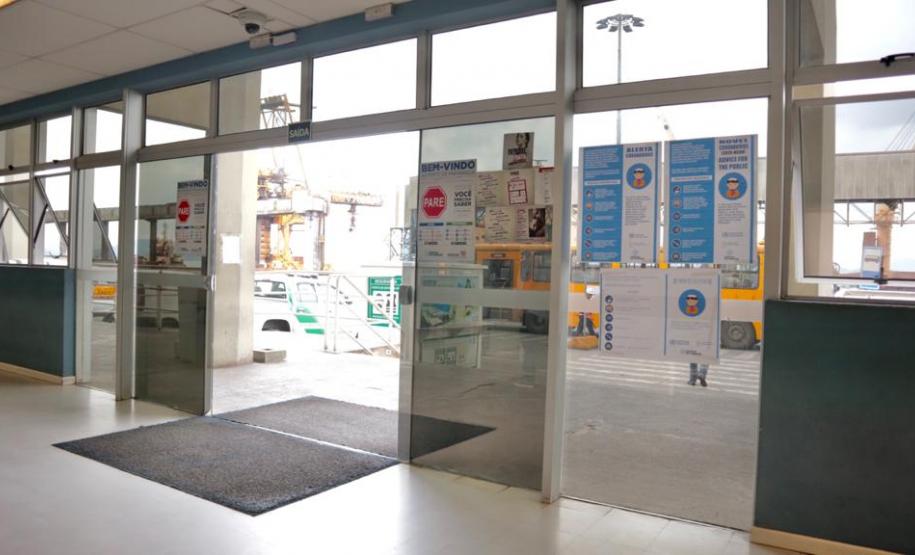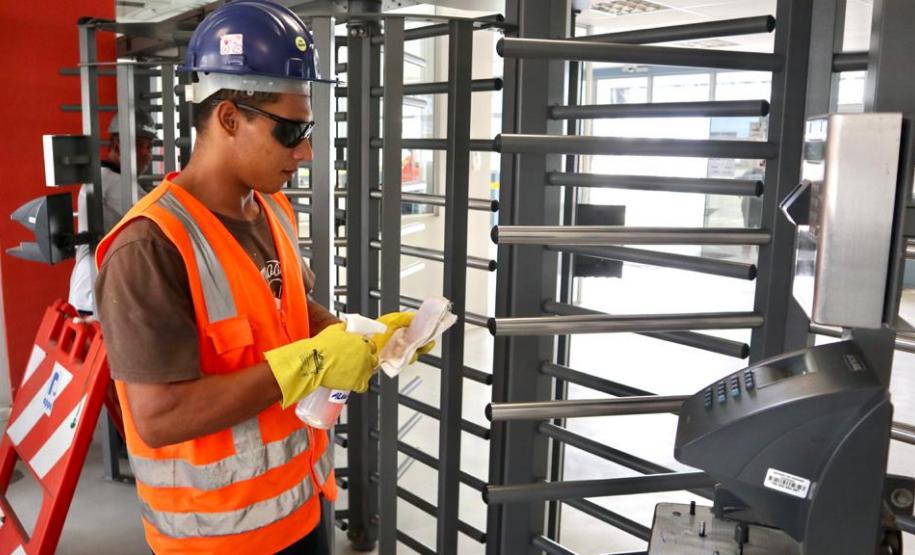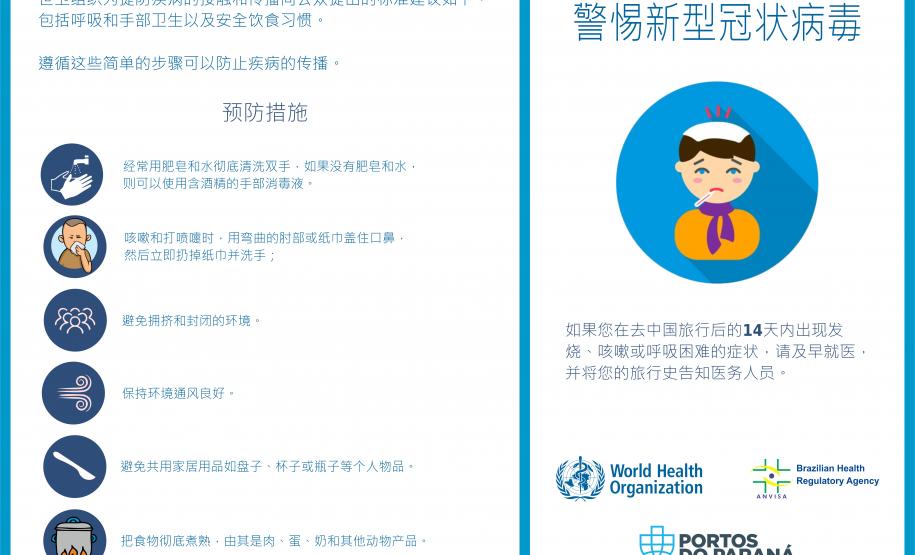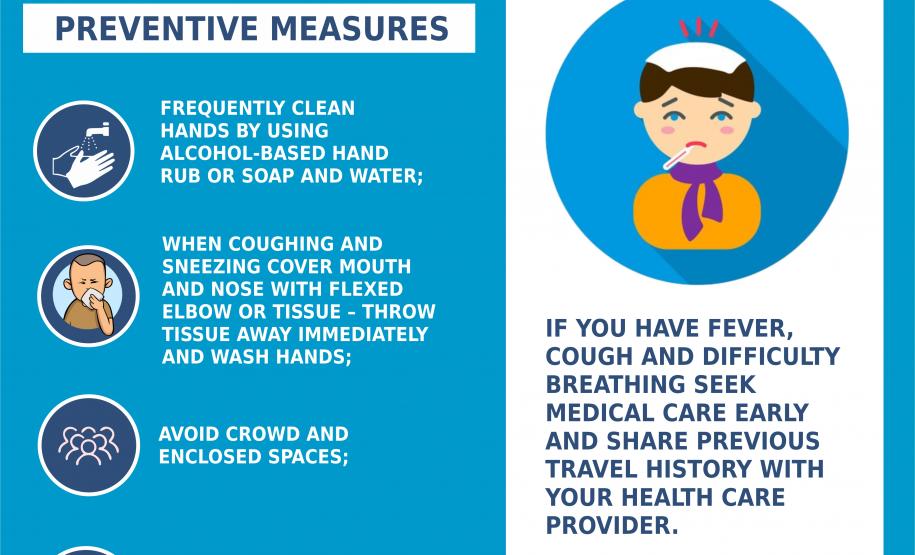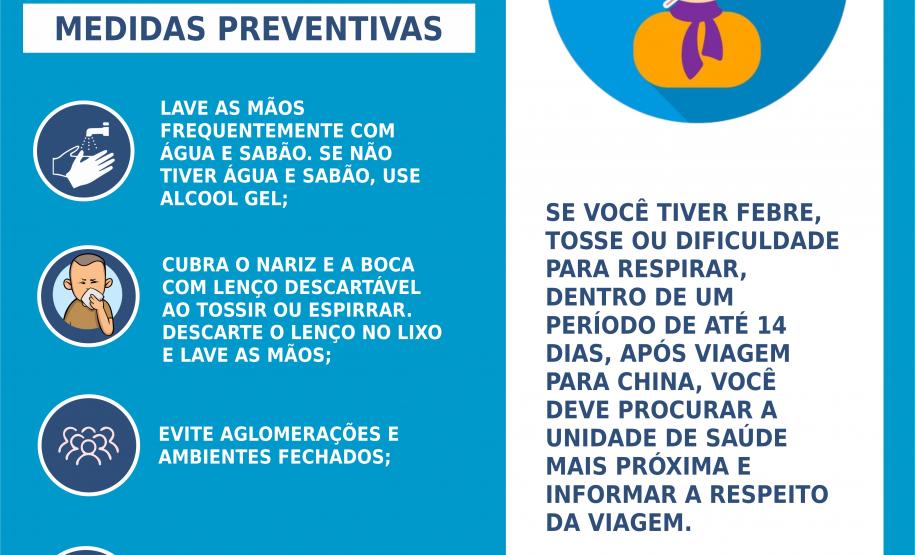Ports of Paraná intensify Coronavirus prevention measures 29/01/2020 - 17:50
The ports of Paranaguá and Antonina adopt a series of preventive measures to control the novel Coronavirus (2019-nCoV). The public company Portos do Paraná has intensified sanitary measures and crew control practices to minimize the risks of infection. According to the international health regulations, the port authority follows a different protocol for vessels and crew members coming from epidemic areas.
The requirements for vessels follow the guidelines of the brazilian National Health Surveillance Agency (Anvisa) and are published in Service Order 12/2020. The public company also establishes an even more intensive cleaning regime in biometric controls for access to bonded areas.
Posters with guidelines from the World Health Organization (WHO) and the brazilian Ministry of Health are already displayed in the different environments of the ports of Paraná, in three languages: Portuguese, English and Mandarin.
Every day, almost 3 thousand people access the primary areas of the Port of Paranaguá, including employees, partners, third parties and visitors. “Our terminals are the entrance and exit door for products and people to the world. As port authority, we are aligned with the guidelines of national and international health organizations”, says the director-president of Portos do Paraná, Luiz Fernando Garcia.
In the last week, from 22 to 28 of January, 960 visitors were registered, being 410 crew members. This year, among the 156 ships that docked in the ports of Paraná, only two were from Chinese ports.
PROTOCOL - The Director of Environment for Portos do Paraná, João Paulo Ribeiro Santana, explains that viruses can enter the port environment in two ways: “first by sea, that is, a crew member coming from the affected region who is on board, another by land, when changing the ship's crew ”, he says.
That is why the protocol establishes that the maritime agent must communicate to the port authority about ships that are coming from epidemic regions, publicly reported. "In these cases, a minimum of 21 days must be carried out between leaving the previous port and arriving here", says the director.
If the vessel arrives before meeting this deadline, Portos do Paraná will ask it to wait at anchor at a location established by the Operations Department. "This is the time that, according to health authorities, allows the virus that is incubated to manifest", adds Santana.
CREW - A crew member who flies to the Ports of Paraná, coming from the epidemic region, to take a work shift on vessels that are berthed, will be asked to present a medical certificate, confirming that they do not present any of the symptoms of the new virus.
In the access to the bonded areas of the ports, the Environment Department has intensified the cleaning of biometric accesses. “Transmission, like the flu, happens through air and contact. Therefore, we also reinforce the request for people to clean their hands before doing biometrics. We are making 70% alcohol available for everyone to use”, says the director.
If any suspicious case arises, Portos do Paraná is aligned with state and municipal health agencies and with Anvisa, regarding the procedures and referrals to be adopted.
COMMUNICATION - Communication with the crew, port workers and service providers that access the areas of the Ports of Paraná is being done through posters. Posted in the main accesses, the materials provide basic information about the simple individual measures that can be taken to minimize the risk of infection with this or another viral disease.
Coronavirus: What is it, symptoms and care
There is no confirmed case of Coronavirus in Brazil, but there is much speculation about the disease. The virus was identified in the province of Hubei, China, in January this year, after the alert of several cases of pneumonia in the city of Wuhan, in late 2019.
Since then, the World Health Organization has monitored the disease in China and worldwide. According to the latest WHO report (No. 9, 29/01/2020), there are 6,065 confirmed cases of the disease so far; 5,997 only in the Republic of China. According to the report, there are no cases in South America.
Coronavirus contamination occurs by air and by contact with contaminated persons, by secretions (droplets of saliva; sneeze; cough; phlegm; close personal contact, such as touching or handshaking; contact with contaminated objects or surfaces, followed by contact with mouth, nose or eyes).
Symptoms are fever, cough and difficulty breathing. Basic care can reduce the risk of infection, including:
- Frequently clean hands by using alcohol-based hand rub or soap and running water.
- When coughing and sneezing cover mouth and nose with flexed elbow or tissue – throw tissue away immediately and wash hands;
- Avoid close contact with anyone who has fever and cough;
- If you have fever, cough and difficulty breathing seek medical care early and share previous travel history with your health care provider;
- Thoroughly cook meat and eggs
- Avoid unprotected contact with live wild and farm animals
- Do not share personal items, such as cutlery, plates, glasses or bottles;
- Keep the places well ventilated.




